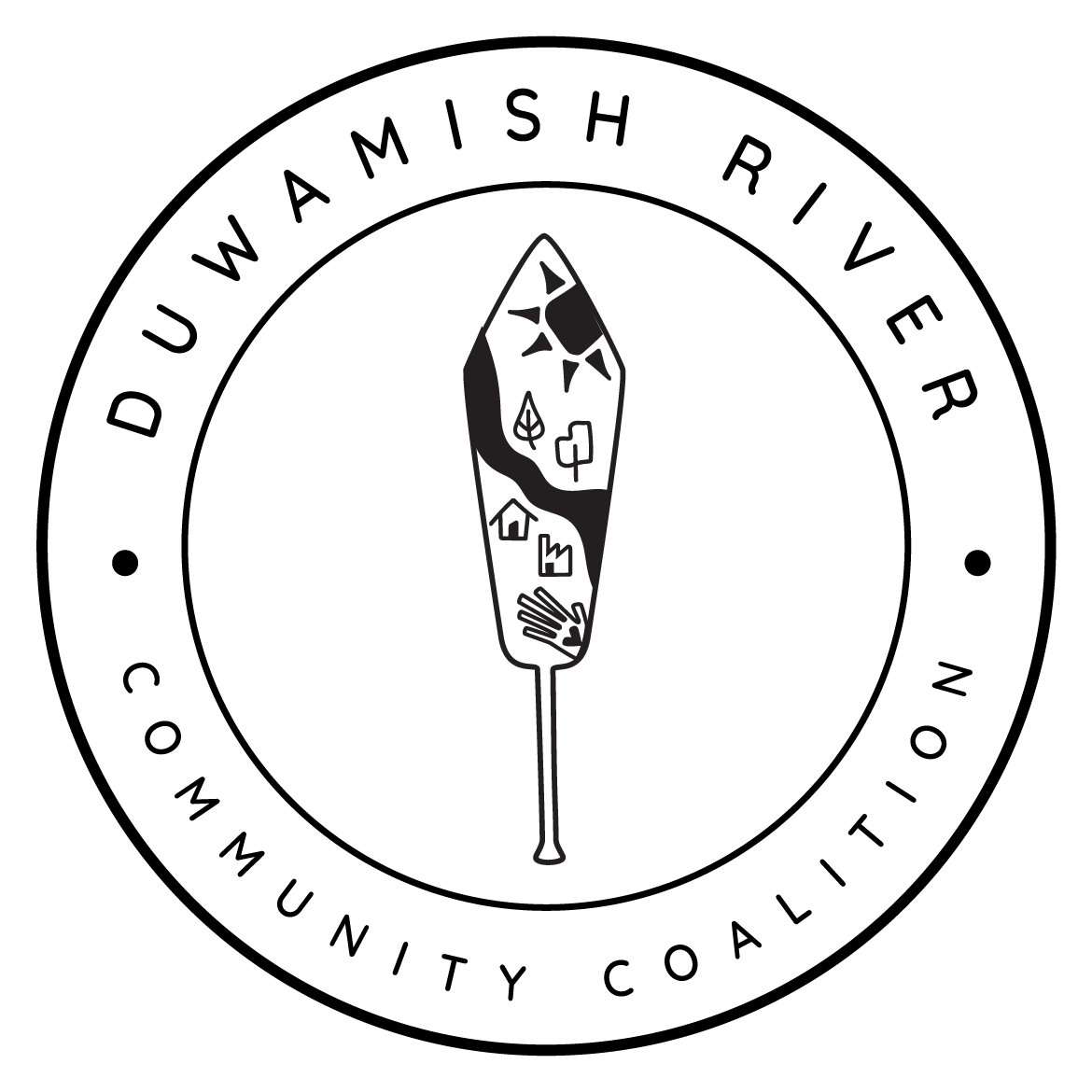Anti- Displacement and Affordable Housing work
In recent years the affordable housing crisis has hit our community very hard. Displacement is one of the top three concerns for community members, and as the River cleanup and more attention from the City continues, our low-income residents are being displaced at an alarming rate. DRCC/TAG is staffing a member of the Duwamish Valley Affordable Housing Coalition in order to support vulnerable community members. Lack of affordable housing and displacement of people of color and low-income residents are frequently linked with examples of environmental injustices being perpetrated on the same demographics. We see the correlation between the two and we have heard the community’s request for support.
For more information, please contact Robin@duwamishcleanup.org
We support the Duwamish Valley Affordable Housing Coalition’s three-prong approach:
Preservation of naturally affordable housing
Creating of new new affordable housing
Creation of new affordable housing space
Placekeeping in the Duwamish Valley
TEXT PLACEHOLDER
Supporting our communities in the wake of the cleanup
We are working with Duwamish Valley stakeholders and community so that they are able to effectively partner to address environmental justice, local wealth building, climate resilience policy and infrastructure, affordable housing, and workforce development challenges. Our vision is a resilient neighborhood organized to advance health equity, center the voices of those most affected by environmental disparities and systemic racism, and where neighbors, workers, and businesses are able to thrive in place despite projected climate change impacts. Only with strong and powerful communities rooted in place will we be able to weather the storm of climate change. Being rooted means having fair housing, dignified work, public transit, and healthy food. With a rapidly changing city, the Duwamish River Cleanup Coalition is drawing the links between gentrification, displacement, climate change and community power.
The Duwamish Valley’s vulnerability to sea level rise and air pollution mean that climate change events will have a greater impact on this community than on wealthier and healthier areas in Seattle.
90% of City acres projected to sustain permanent increase in water levels are in South Park. This inundation may render these areas unlivable and unworkable, causing significant economic impact. To understand the environmental justice implications, census tracts impacted by projected flooding according to social variables including income, minority status, language, and housing have been assessed. The analysis revealed the communities most impacted by flooding are also disproportionately underserved, most notably in South Park/Georgetown.
Flooding Resilience
Since the River overtopped in December 2022, DRCC has partnered with community-based organizations Villa Comunitaria and Just Health Action to facilitate the Flood Community Advocacy Group (also known as the Flood CAG). This group is made up of flood-impacted neighbors and meeting agendas are entirely community-driven. These agendas fall under three categories: short-, mid-, and long-term solutions for flood resilience. The Flood CAG works very closely with Seattle Public Utilities (which funds the meetings) and various King County departments.
DRCC also works with the City’s Resilience District Advisory Group to advise long-term solutions, and has recently begun a partnership with the University of Washington’s EDGE Center to consider long-term solutions from a strictly community perspective. Part of this effort is learning about and educating the community about flooding pathways and solutions.
Community Capacity & Organizing
We seek to streamline the many small local interest groups, to bring them together and integrate their missions, and most importantly to support voices that are commonly overlooked and/or not heard within community meetings and organizations and regarding decisions directly impacting them. We wish to amplify the voices of low-income neighbors, immigrant neighbors, and people of color. In the Duwamish Valley, most of these voices belong to African-Americans, Native Americans, and Cambodian, Latinx, Vietnamese, and Somali immigrants and refugees. We envision a coalition-type body as our goal is communication and support while ensuring that the voices referred to above are given equitable airtime and opportunity to speak and organize as a decision-making body. We feel strongly about the role of equity in this effort and how it will affect communication between representatives and community.
“We only need to get stronger and get to decide for ourselves, nobody should be deciding for us. If we have the tools we need, we will succeed.”







